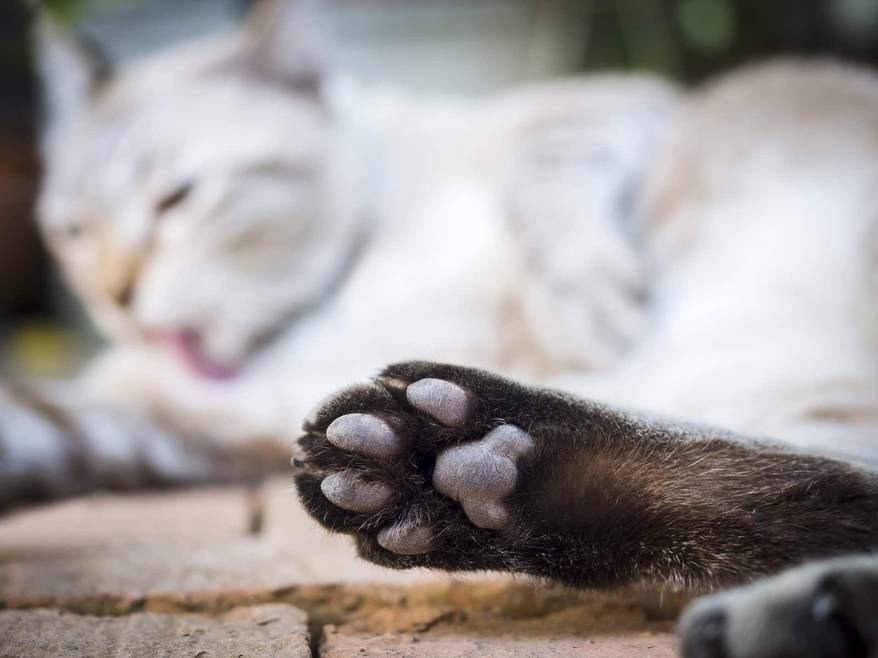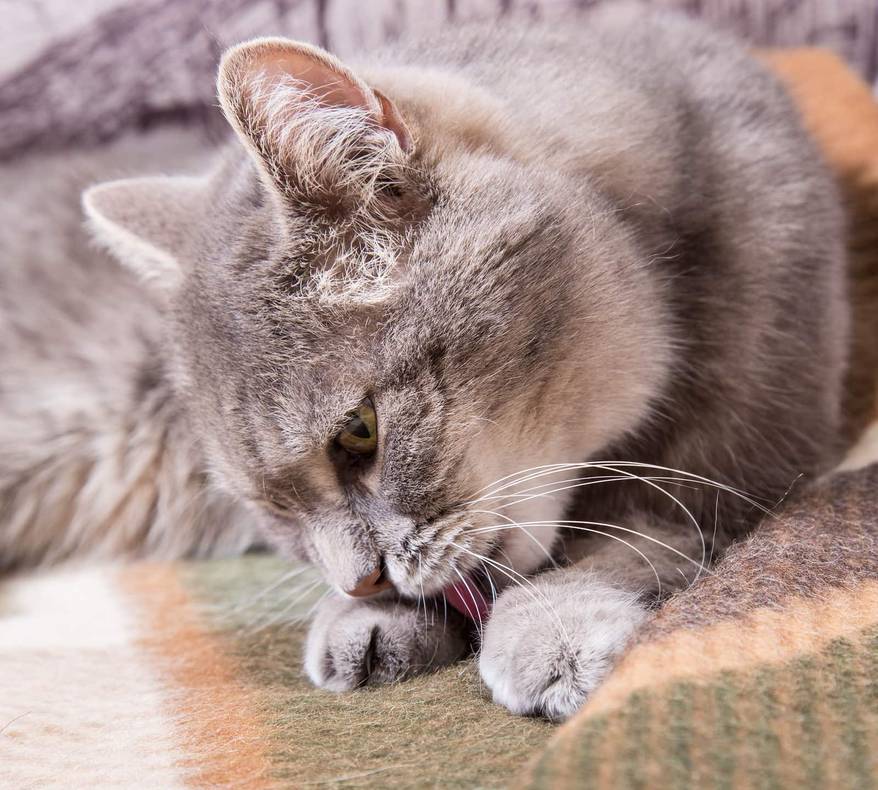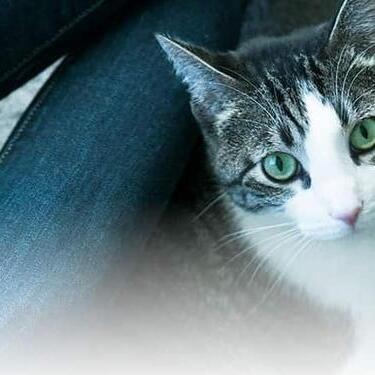
-
Find the right food for your pet
Take this quiz to see which food may be the best for your furry friend.
Find the right food for your pet
Take this quiz to see which food may be the best for your furry friend.
Featured products
 Adult Healthy Cuisine Roasted Chicken, Carrots & Spinach Stew Dog Food
Adult Healthy Cuisine Roasted Chicken, Carrots & Spinach Stew Dog FoodDelicious roasted chicken paired with tender vegetables in a succulent stew
Shop Now Small & Mini Savory Stew with Chicken & Vegetables Dog Food
Small & Mini Savory Stew with Chicken & Vegetables Dog FoodA delicious complement to the nutrition of Science Diet Small & Mini 7+ dog food
Shop Now Adult 7+ Perfect Digestion Chicken, Whole Oats & Brown Rice Recipe Dog Food
Adult 7+ Perfect Digestion Chicken, Whole Oats & Brown Rice Recipe Dog FoodScience Diet's breakthrough nutrition supports ultimate digestive well-being & healthy microbiome for dogs age 7+
Shop NowFeatured products
 Adult 7+ Tender Tuna Dinner Cat Food
Adult 7+ Tender Tuna Dinner Cat FoodWith delicious chunks in a decadent gravy
Shop Now Adult 7+ Senior Vitality Chicken & Vegetable Stew Cat Food
Adult 7+ Senior Vitality Chicken & Vegetable Stew Cat FoodImproves Everyday Ability to Get Up & Go
Shop Now Adult Savory Entrée Can Variety Pack Cat Food
Adult Savory Entrée Can Variety Pack Cat FoodPrecisely balanced nutrition with the delicious taste of savory minced chicken to help fuel the energy needs of cats during the prime of their life
Shop Now -
Dog
- Dog Tips & Articles
-
Health Category
- Weight
- Food & Environmental Sensitivities
- Urinary
- Digestive
- Joint
- Kidney
-
Life Stage
- Puppy Nutrition
- Adult Nutrition
- Senior Nutrition
Cat
- Cat Tips & Articles
-
Health Category
- Weight
- Skin & Food Sensitivities
- Urinary
- Digestive
- Kidney
-
Life Stage
- Kitten Nutrition
- Adult Nutrition
Featured articles
 Why Are Dogs and Cats So Cute?
Why Are Dogs and Cats So Cute?If waggy puppy dog tails and furry kitten yawns make you swoon, you're not alone. Why are cats so cute? And, dogs too! Let's find out!
Read More Does My Pet Hate Me?
Does My Pet Hate Me?Learn tips for bonding with your pet if you've ever thought, 'My dog doesn't like me, or 'Why do I have a standoffish cat?'
Read More Do Dogs and Cats have Belly Buttons?
Do Dogs and Cats have Belly Buttons?Learn whether cats & dogs have belly buttons like humans, what the function is, and if there are any health concerns associated with it.
Read More -


Your kitty's paws are as important to them as your hands and feet are to you. As a cat parent, it's important to help your cat maintain healthy paws. This quick guide to cat paw care will help you keep all of the cat paw pads in your fur family healthy and clean.
Why Care for Cat Paw Pads?

Think for a moment about how cats use their paws. They walk across a variety of surfaces in your house including dirty surfaces such as the litter box. If they're allowed outside on a leash, they may walk across rough and rocky ground, step on thorns and other sharp items, and tread across hot or cold surfaces, depending on the weather. Cats allowed outdoors in the winter are also susceptible to walking through harsh salts and other deicing agents that can be harmful to paws.
At some point in the day, your kitty will take it upon themselves to clean their own paws by licking them, in the process ingesting any harmful substances their little feet may have picked up. Regular cat paw care that includes inspections and cleaning will not only help keep your kitty's paws clean and safe for licking, but also allow you to manage dry and cracked paws, cuts and other injuries before they can become infected.
Cat Paw Care Guide
Getting Started
While inspecting your cat's paws on a regular basis will be good for ensuring you keep them healthy, you can also look for signs that something may be going on with the paws. If you notice your cat is limping or not putting pressure on a certain paw, they might have something stuck in it or could have injured their paw in some manner. Keep in mind that cats are good at hiding their pain, so you may have to pay close attention. Additionally, when a cat is injured they might be less receptive to you inspecting them, so do your best to keep them comfortable and calm while you inspect them.
If your cat isn't used to having their paws handled, you may need to get them accustomed to the idea. It can be helpful to get into the habit of massaging your kitty's paws when you hold or pet them. This will not only help them become accustomed to having their paws touched and handled, but will also help you detect any debris that might be caught between the toes and paw pads.
Paw Inspection
Once your cat tolerates you handling their paws, make it a point to examine them daily, especially after they return from an outdoor jaunt. Look for scratches, sores, and foreign objects, says the Animal Care Clinic in Lexington, Kentucky. If you find something embedded in your cat’s paw, if possible, use a pair of tweezers to gently remove it or call your veterinarian if it's embedded deeply.


Tasty Tips
Paw Cleaning
Either before or after your inspection, use a soft cloth to wipe all those tiny cat paw pads, as well as around the pads and between the toes. This will clean their toes of dirt, litter dust and any chemicals or foreign objects.
Nail Trimming

Use a pair of nail scissors made especially for cats to trim cat claws. Be sure to trim just the tips, taking care to avoid the quick (the part of the nail containing sensitive nerves and veins).
If you do accidentally cut into the quick, keep some styptic powder to stop the bleeding. If you don't have any styptic powder on hand, it may be a good idea to buy some at your local pet supply store just in case you need it.
Treating Dry Cat Paw Pads
If your kitty's paw pads become dry, irritated or cracked, contact your vet; they recommend that you try moisturizing them with olive, coconut or another food-quality oil that will be safe for them to lick. You may want to confine them to a bathroom while the oil absorbs to keep her from tracking it through the house. If they need something more heavy-duty, ask your vet to recommend a good paw moisturizer for cats. Avoidotions made for humans, which may be harmful if ingested.
Additional Considerations
Of course, one of the best things you can do for your kitty's paws is to keep them indoors, where they’ll be less likely to become injured or encounter extremely hot or cold surfaces or dangerous chemicals. Dry winter air can dry out your kitty's paws, so consider using a humidifier during cold months. A scratching post can also help keep their nails in good condition — not to mention keeping your carpet and furniture safe from the urge to claw.
With everything involved in caring for cats, it's easy to overlook proper cat paw care. Making a daily habit of checking and cleaning their paws will make it easy to keep them in good shape.


Jean Marie Bauhaus is a pet parent, pet blogger, and novelist from Tulsa, Oklahoma, where she usually writes under the supervision of a lapful of fur babies.
Related products

Supports energy level and beautiful fur in mature cats

Precisely balanced nutrition with the delicious taste of savory minced chicken to help fuel the energy needs of cats during the prime of their life

Improves Everyday Ability to Get Up & Go

With delicious chunks in a decadent gravy
Related articles

Brushing your cat's teeth is just as important as brushing your own. Learn signs or oral health problems in your cat and how to avoid them.

Discover the benefits of Hill's line of kitten foods and how they provide complete and balance nutrition for growing kittens.

Discover how to identify cat sensitive skin and what you can do to help your cat thrive from head to paw.

Discover which cat toys games your feline friend might like, and how they are great sources of exercise. Explore our library of articles to learn more.

Put your cat on a diet without them knowing
Our low calorie formula helps you control your cat's weight. It's packed with high-quality protein for building lean muscles, and made with purposeful ingredients for a flavorful, nutritious meal. Clinically proven antioxidants, Vitamin C+E, help promote a healthy immune system.
Put your cat on a diet without them knowing
Our low calorie formula helps you control your cat's weight. It's packed with high-quality protein for building lean muscles, and made with purposeful ingredients for a flavorful, nutritious meal. Clinically proven antioxidants, Vitamin C+E, help promote a healthy immune system.

